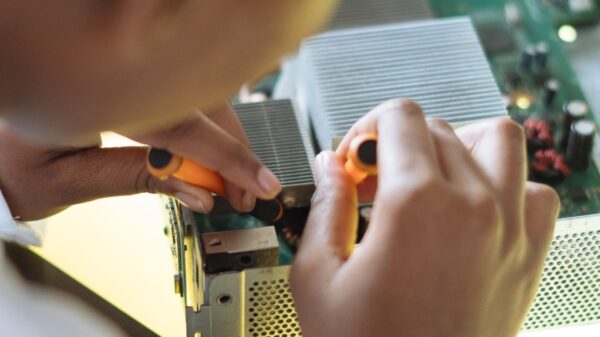Career evolution – and, actually, the evolution of everything – is not some straight line to success, it’s actually more plodding than we think.
Steve Jobs > a puppy?
For Christmas in 1998, I got a dog and my sister got an iMac. I’d wanted a dog for all seven years of my life, but when Anna unwrapped her shiny blue personal computer, I cried.
We later played with the iMac more than the dog. We became infatuated with a computer game called Bugdom, where we directed a roly poly named Rollie McFly to free Bugdom from the tyranny of an evil fire ant.
But the one most enthralled with Bugdom and the iMac was my dad. He once got my mom, who doesn’t fish, a fly tying kit for Christmas, and maybe this was like that. The computer sat in Anna’s room, where my dad would play late into the night as she slept. Thanks to “top-notch” graphics and sound, the game was one of the first that could “be enjoyed by both children and adults,” according to the now-defunct Mac news site, Applelinks.
But there was probably another reason my dad loved the iMac: it was a symbol of progress.
To: Caroline, Love: The Universe
Born between roughly 1980 and 2000, many millennials saw only the end of the tech revolution. For us, those bright, translucent iMacs just appeared under the tree. We commanded walking bugs on a screen and didn’t think anything of it. What we perceived as commonplace magic was, for my dad, a product of a long time coming.
From a human’s perspective, the evolution of computers was slow and inefficient. My dad was born during the first generation of computers (1940-1956), which were the size and weight of Hummers and calculated basic arithmetic. I was born in the middle of the fourth generation (1971-2010), which introduced personal computers, the Internet, and the graphical interface that made Bugdom possible.
In many ways, millennials came of age in a tech and consumer landscape that was already formed. My dad grew up making DIY radios. I grew up, like Zoolander’s Hansel, not really knowing what was in the computer.
And so when it came time to start my career, I entered the workforce assuming the perfect position was waiting for me. Perhaps it would take some time to find, but somewhere was an unwrapped box labeled, “To: Caroline, Love: The Universe,” containing my career.
Nearly four years out of college, I’ve learned that careers aren’t like Steve Jobs’ iMac or Amazon Prime. My mistake was thinking the road to my ideal career would be efficient and already existing. I didn’t understand what evolution meant.
Mistakes, change, progress
The definition of evolution is “any process of formation, growth or development.” And it’s not that computers and careers are slow to advance. Evolution itself, at least the biological kind, is sluggish.
In a 2012 Scientific American article on the findings that just 80 percent (or, by some accounts, 8.2 percent) of human DNA is functional, Ashutosh Jogalekar explains that “evolution is messy, incomplete and inefficient.” Because evolution arises from mutations – mistakes in gene copies or resulting from environmental factors – it’s a “flawed, piecemeal … and patchwork process.” Most mutations don’t do anything, or kill us. The rest help us evolve.
Since mutations start in a single cell, evolution takes time. Artificial intelligence researcher Eliezer Yudkowsky wrote that in a human population of one million, it would take 2763 generations for a “gene conveying a one percent advantage to spread through the gene pool.” For example, it took homo sapiens who migrated from Africa to Europe about 30,000 years to develop light skin in response to the cloudier, colder environment.
Even with time, sometimes evolution works poorly. Consider pandas, who are notoriously bad at the two things their species needs to survive: mating and digesting bamboo. But despite inefficiencies, without mutations biological evolution, species variation and humans wouldn’t be possible.
Likewise, without time and frequent mistakes and changes, a well-formed, fulfilling career is unattainable. Career development differs from biological evolution and technology advancement, of course, but the point is evolution is never easy or efficient. The expectation that it is causes needless pain and confusion.
Takeaway
Our careers are not just long but random, circuitous and faulty. Once we overcome that surprise, though, I think this fact is deeply rewarding. Maybe my dad enjoyed Bugdom so much because he knew what went into it.
Originally published at GenFKD.org.
GenFKD is equipping millennials with the skills and education necessary to create and lead the “new economy.” To learn more, head over to GenFKD.org.


























